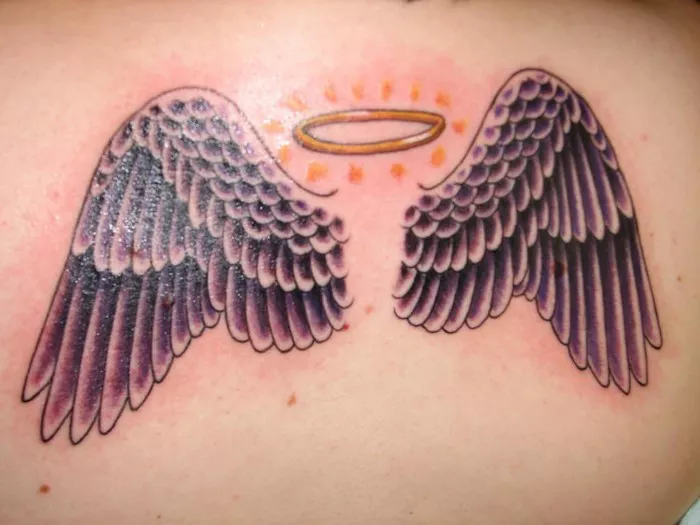In the vast realm of tattoo artistry, symbolism reigns supreme. Each design etched onto skin carries profound meanings, reflective of the wearer’s beliefs, experiences, and aspirations. Among the myriad of motifs, the fallen angel tattoo stands out as a captivating emblem shrouded in layers of allegory and mystique. From its roots in ancient mythologies to its modern-day interpretations, the fallen angel tattoo continues to fascinate and intrigue enthusiasts worldwide.
Symbolism of Fallen Angels:
Fallen angels, once celestial beings basked in divine purity and righteousness, fell from grace due to rebellion or temptation. Their descent from the heavens into the realm of darkness symbolizes the eternal struggle between good and evil, light and shadow. This dichotomy encapsulates the complexities and duality inherent in the human experience, resonating with individuals grappling with their own moral ambiguities and inner conflicts.
Visual Appeal and Aesthetics:
The allure of fallen angel tattoos lies in their captivating blend of heavenly elegance and melancholic darkness. Adorned with intricate wings and haunting expressions, these tattoos evoke a sense of ethereal beauty tinged with sorrow. The juxtaposition of divine imagery against somber undertones creates a visual contrast that is both striking and evocative. It is this intricate complexity that appeals to those with an appreciation for artistry and depth in body art.
Inner Conflict and Moral Ambiguity:
At the heart of fallen angel symbolism lies the narrative of inner struggle. Wearing a fallen angel tattoo serves as a testament to the constant tug-of-war between contrasting forces within oneself. It is an acknowledgment of the complexities and contradictions that define the human condition, inviting introspection and acceptance of one’s multifaceted nature. Through this lens, the fallen angel becomes a poignant reminder of the perpetual quest for balance and understanding.
Rebellion and Independence:
For many, fallen angel tattoos symbolize rebellion and independence. The image of a celestial being cast out from the heavens resonates with those who yearn to break free from societal norms and embrace their individuality. By donning this motif, wearers assert their autonomy and defiance against conformity, embracing the path less traveled with courage and conviction.
Loss and Redemption:
Emotionally charged and deeply introspective, fallen angel tattoos often carry themes of loss and redemption. Some individuals choose this design as a means of expressing the consequences of wrongful choices, the pain of inner turmoil, or the mourning of lost innocence. Yet, amidst the darkness, there is also a glimmer of hope – a testament to the resilience of the human spirit and the possibility of redemption and renewal.
Historical and Cultural Context:
The symbolism of fallen angels traces its origins back to ancient mythologies and religious texts. In Mesopotamian mythology, figures such as the fallen goddess Inanna embody themes of descent and rebirth. In Greek mythology, the tale of Icarus serves as a cautionary reminder of the perils of hubris and disobedience. Within Christianity, fallen angels are depicted as Lucifer and his rebellious cohort, expelled from heaven for their defiance against divine authority.
Throughout history, fallen angels have captured the imagination of cultures worldwide, appearing in various forms across literature, art, and folklore. From the biblical narrative of Lucifer’s rebellion to Milton’s epic poem “Paradise Lost,” the archetype of the fallen angel continues to permeate our collective consciousness.
Across different belief systems, from Christianity to Judaism to Islam, the concept of fallen angels endures as a symbol of the human struggle with temptation, sin, and redemption. It speaks to the universal themes of moral ambiguity, existential angst, and the quest for spiritual enlightenment.
In conclusion, the fallen angel tattoo serves as a potent symbol of the complexities inherent in the human experience. It embodies the eternal struggle between light and darkness, good and evil, while also inviting introspection and self-discovery. Whether worn as a mark of rebellion, a tribute to inner resilience, or a reflection of spiritual beliefs, the fallen angel tattoo continues to captivate and inspire, transcending boundaries of time, culture, and creed.

